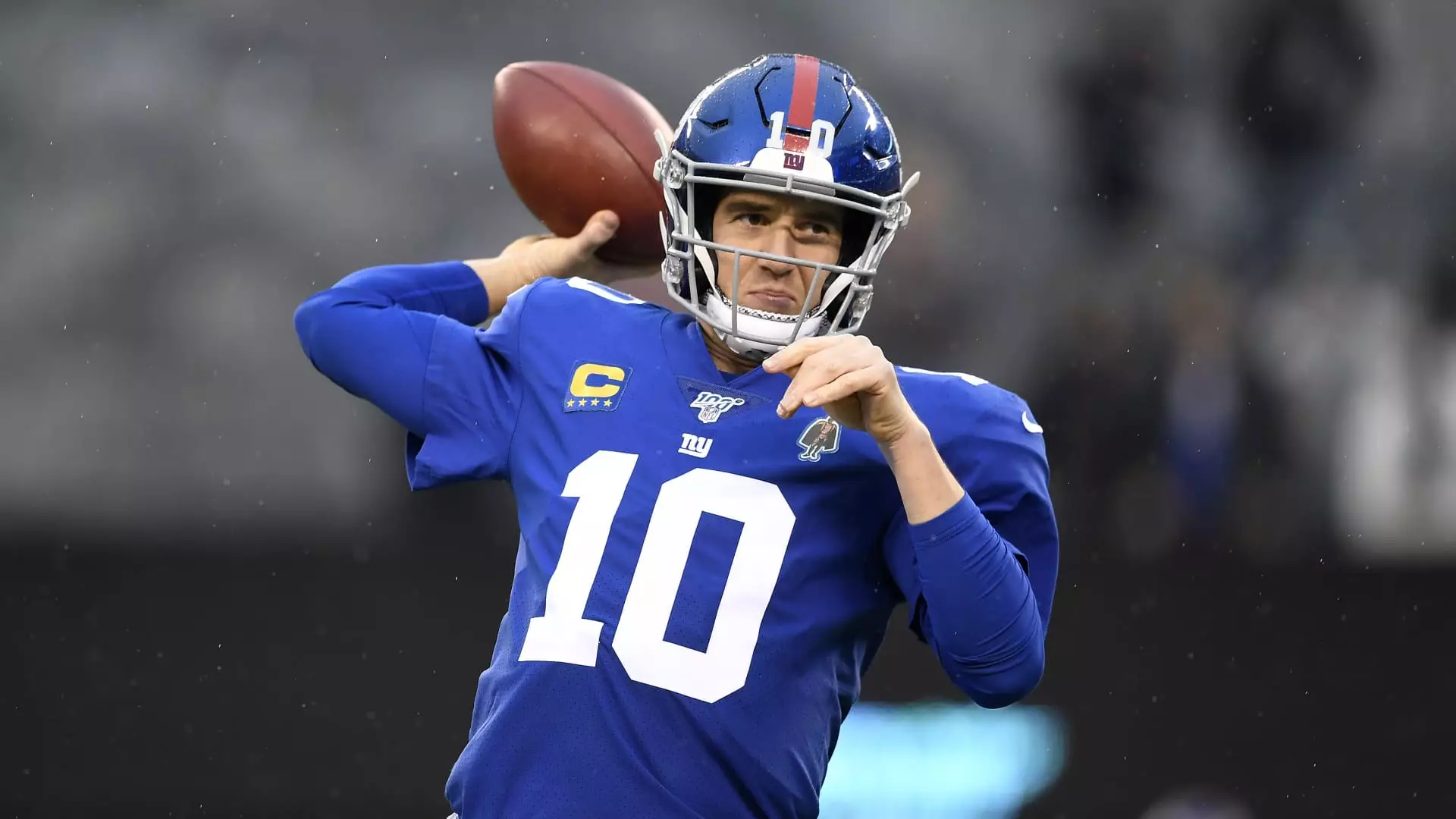In recent years, the National Football League has transformed into a symbol of skyrocketing value—yet beneath this glittering facade lies a troubling disconnect between perceived worth and genuine economic sustainability. The booming valuations of franchises such as the New York Giants, Eagles, and 49ers may seem like triumphant indicators of success, but they also highlight a speculative bubble fueled by reckless greed and a distorted perception of media and corporate influence. When investors and former players like Eli Manning see the enormous figures cited for team values, it’s instructive to consider whether these numbers are realistic or inflated hyperbole driving an artificial financial ecosystem.
The core issue is that these valuations are often disconnected from tangible revenue streams; instead, they rely heavily on brand equity, future broadcasting rights, and the hope of rising media consumption—factors inherently unstable and susceptible to market shifts. Manning’s candid admission that he’s “priced out” of purchasing a stake exemplifies how even those with wealth comparable to billionaires find these valuations absurdly detached from everyday economic realities. This talk of a $10 billion valuation for the Giants is more a reflection of market buzz than an accurate appraisal rooted in consistent profit generation. It’s an illusion of prosperity that masks underlying vulnerabilities in the league’s financial health.
The Power Dynamics of Wealth and Influence
The NFL’s valuation frenzy is far from a neutral market phenomenon; it reveals the profound influence of entrenched power networks—namely, the ownership families like the Maras and Tisches—who continue to dominate decision-making and control lucrative stakes. This concentration of wealth creates a barrier for aspiring minority owners, such as Manning, who recognize that their participation is limited by prohibitively high costs and entrenched structural inequalities. The league’s recent move to allow private equity investments of up to 10% is a hollow gesture—a way to placate the broader narrative of democratization while maintaining oligopolistic control.
For former athletes like Manning, the decision to step back from ownership isn’t simply financial; it’s also rooted in ethical concerns about potential conflicts of interest, media influence, and the integrity of the sport. Manning’s commentary about how direct involvement with team ownership might conflict with his broadcasting role underscores the complex web of interests at play. His wealth, earned through hard-fought career earnings and endorsements, confers a moral authority to question whether the current valuation system serves the broader public good or merely inflates the egos of billionaires.
The Broader Cultural and Economic Implications
The obsession with billion-dollar franchise valuations underscores a deeper societal issue—where sports and entertainment are increasingly treated as financial commodities rather than cultural institutions. This fixation distorts priorities, encouraging greed and short-term gains over sustainability and community well-being. For the average fan, these figures are less about celebrating athletic achievement and more about fueling investor greed, which ultimately exacerbates inequality and diverts resources away from meaningful community investments.
Furthermore, the league’s elevation of franchise values impacts player salaries, fan engagement, and the economic resilience of local communities. It propels an arms race of sorts, where teams and owners invest heavily in branding and stadiums, often at the expense of other crucial social services or local development. Manning’s perspective as a center-wing liberal emphasizes the need for a critical reevaluation of what true value in sports should be: community health, fair labor practices, and transparent governance, rather than inflated dollar signs.
By scrutinizing these valuations, it becomes clear that the NFL’s financial narrative is crafted to serve powerful interests rather than reflect genuine economic robustness. The illusion of endless wealth masks the vulnerabilities of a system overly dependent on media rights and spectacle-based revenue. It is a reminder that beyond the shiny facade, there is an urgent need for a more equitable, socially responsible approach to sports and entertainment—one that recognizes true value lies in enhancing community well-being, not inflating billionaire bank accounts.

